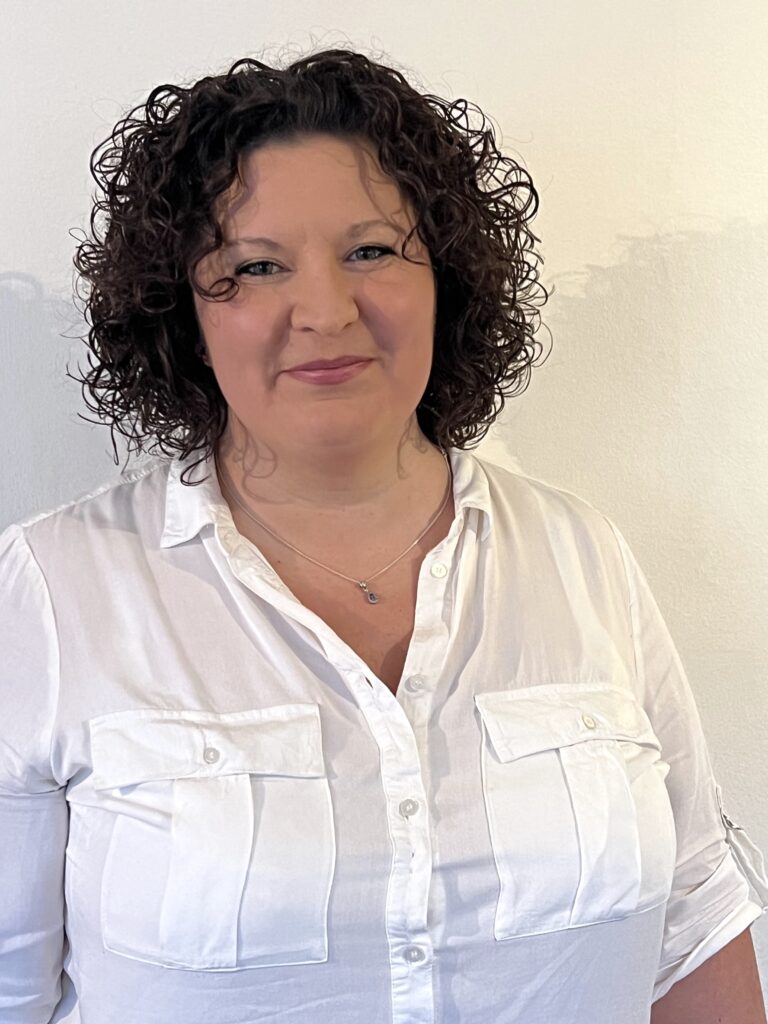Sophie starts in new Head of Health Equity role
We’re delighted to welcome Sophie Valinakis to the Trust. She took up the newly established role of Head of Health Equity based in the Care Services directorate in early February. Sophie, a North Londoner of British and Greek descent, moved to Lancashire around thirty years ago where she resides today.
The story so far . . .
My passion has always been fighting for fairness and justice, enabling others to have opportunities and continuously improve. My background is in criminology and criminal justice with a specific interest in global migration and human rights implications. As you could guess, I love to travel!
My main previous working experience has been with local authorities – I spent around 14 years delivering multi agency transformation and improvement programmes across Lancashire and South Cumbria. This included programmes in reducing domestic abuse, improving health and care for young offenders, and improving services for children and young people with special educational needs and disabilities.
I then moved into work as part of the Healthier Lancashire & South Cumbria Integrated Care System managing the Learning Disability and Autism Transformation Programme Team. I managed a partnership of NHS, local authority, public sector, and voluntary and community organisations working together to improve outcomes and care of people with learning disabilities and/or autism.
For the past few years I’ve been working nationally in NHS England’s Patient Equalities Team focusing on improving public access to health and care taking a lead on the redrafting of the Accessible Information Standard.
This was a very interesting and fast paced role working across government and into the Department of Health and Social Care to advise and improve services during and post pandemic, when we know people with communication needs were disproportionately disadvantaged. The role was about making sure that statutory policy was appropriate and reflects emerging demands.
So, why LYPFT?
What attracted me to LYPFT was the job title; ‘Head of Health Equity’. To me that means us concentrating on removing the avoidable disadvantages or ‘health inequalities’ we create for people based on social factors that they have very little (if any) control over such as where people are born, grow, live, work, play and age, as well as biological determinants.
Health equity means social justice in health. In other words, no one is denied the possibility to be healthy for belonging to a group that has historically been economically or socially disadvantaged.
It’s so important to understand that health inequalities are unfair and avoidable differences in health across populations, and between different groups within society.
Health inequalities lead to poorer health outcomes within already vulnerable communities. Health inequalities often overlap with one another to create more complexities for people.
I’m so grateful to be able to come to this Trust where Health Equity is a fundamental priority. I’m excited to be able to collaborate with staff as passionate as me, supporting people in mental health and learning disability services; who we know are already highly disadvantaged.
What does a Head of Health Equity do?
In a nutshell, my role is about improving access and experience of services for anyone who might not have the same advantages in life as you or I.
I will be working across the Trust and externally with partners because we know we cannot do it alone. I have a strong background in transformational care programmes and multi-agency working, so I can hopefully bring a lot to the table here.
You can expect me to get stuck into the detail and be highly involved. However, I have to remember I’m just one person so its not up to me to do all the change. Ensuring equity of services must sit at the heart of everything we do to support people.
I see myself as a facilitator or enabler, getting the right people in the room to apply ourselves in the right way.
One of my first jobs is to work out where the organisation needs me most and where I can best apply myself. I look for like minded people, who are also passionate about their areas of work, and are motivated to make what can sometimes be very simple changes that can make a huge positive impact on people’s lives. If you’re one of those people, please get in touch with me.
It’s important to create space to do innovative thinking – and when you’re overstretched trying to keep service users safe that isn’t easy. We need to ensure the conditions are right for change – that people feel they have the autonomy and authority to make changes they see if front of them without always seeking permission.
Most important of all, we need to listen to what service users and carers say.
What keeps you busy at home?
I have a very busy home life. I love to travel and I love the sun so I can usually be found in Greece visiting family every summer. I have a newfound adoration for Finland in the winter and visiting the big man himself with the children and my partner, and viewing the northern lights has created some very magical moments for us.
I’m massively into sports, looking forward to the continued Six Nations rugby. I love the gym, anything active and outdoorsy I’m up for (except golf).
Finland is Sophie’s choice for a winter getaway!
What do you want to achieve in your time here?
I want to know that me being here has achieved something and made a difference. I want to be the driving force that enables people to identify health equity issues and empowers them to move that knowledge into a collective action.
Health equity is achieved when everyone can attain their full potential for health and well-being.
In this work it can often be difficult to see the final outcome of much collective action. That’s why it’s important to me that we define our key priorities right at the start, so we know what we are aiming for and how we plan to get there. As such, understanding our evidence and making best use of our resources is vital for me.
One of my proudest career moments was leading the transformation of domestic abuse services in Lancashire. It was a partnership involving the police, Her Majesty’s Courts and Tribunals Service, 13 local councils and one large unitary authority. In times of unprecedented financial constraints, we manged to secure new funding, designed and created new services for victims and their children, and were one to the first areas to commission perpetrator services.
We were under a lot of political pressure but as a partnership we got some fantastic outcomes. Her Majesty’s Inspectorate of Constabulary examined our work during strategy implementation and praised our partnership working for ‘providing a better service to victims of domestic abuse than other forces’ evidencing increased service capacity and sustainable collaborative approach to reducing risk.
So, my aim is for us to ride this wave and achieve something similarly inspiring here!
Picture courtesy of Visit Finland.

